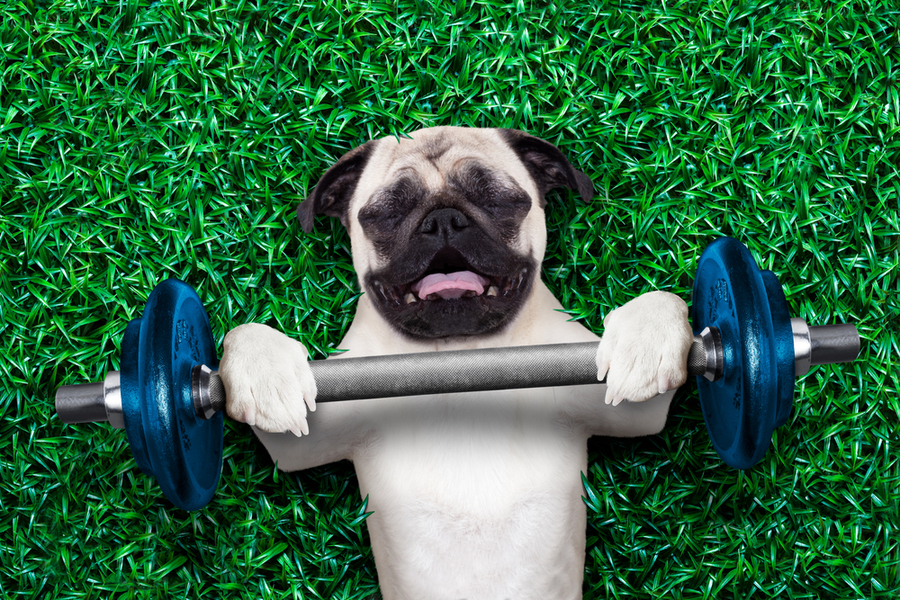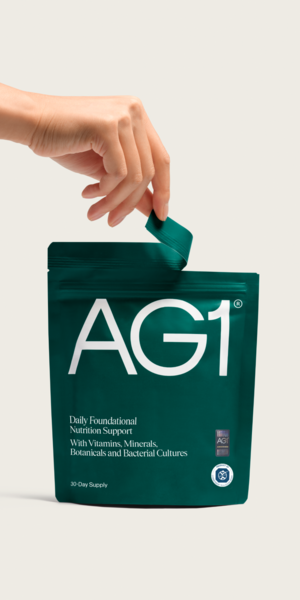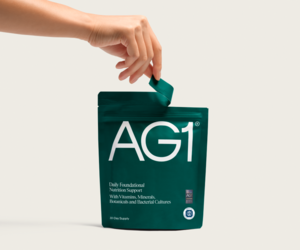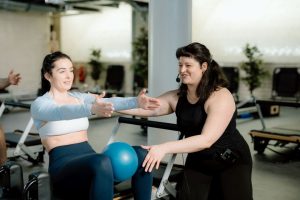The 10 most Googled exercise questions, answered

For those of us tentatively dipping our toes into the shark-infested waters of fitness, gym memberships, workout DVDs, weight-loss plans and muscle fitness as a part of our January reset, it can seem like a bewildering minefield of misinformation, claims and counter-claims. We thought we’d seek some expert advice on your behalf, from former athlete and nutrition advisor, Omar Walker. Thank us later.
1 “When can I exercise after testing positive for Covid 19?”
Every person’s experience is different, and each of us recover at a different rate. However, one thing is clear – exercise should not resume if a patient with COVID-19 has persistent fever, dyspnea (breathlessness) at rest, cough, chest pain, or palpitations. Any COVID-19 patient with an underlying cardiovascular or pulmonary condition should absolutely consult a doctor before starting to work out, even if asymptomatic. An otherwise healthy patient who has been asymptomatic for seven days should resume physical activity slowly – at around 50 percent of the normal intensity and volume.
2 “What are the ten best exercises?”
For a full body workout, the basics work, and there are ten exercises you can do that will work out your tummy, arms, legs and everywhere else to boot. Opt for lunges, push-ups, squats, burpees, planks and side planks, plus bridges. Then grab a set of dumbbells for overhead dumbbell presses, dumbbell rows, and single leg deadlifts. Find out more on how to do them here
3 “Why does exercise matter?”
Scientific research has shown that at least 15 minutes per day, or 90 minutes per week, of moderate-intensity exercise increases life expectancy by three years. Like nutrition, exercise is a vital part of healthy lifestyle. Exercise has endless benefits, both physically and mentally, and should always be a part of your daily routine.
4 “Which exercise programme is best for me?”
What is right for you depends on a variety of factors, one of which is personal goals. Make exercise decisions based on what you want to achieve, for example if your goal is to lose fat and tone up, you should be doing high-intensity interval training (HIIT). If you want to improve cardiovascular health, then try aerobic training. For an increase in muscle mass, you need to be doing some heavy lifting.

Home body: You don’t need a gym to get in shape.
5 “Where do I begin with exercise?”
Like anything else, begin with something that you will feel comfortable with. There is nothing worse than throwing yourself in at the deep end and stumbling at the first hurdle. Begin with something you find easy and something you enjoy. Listen to your body and only progress on to the next stage when you feel happy to do so. Taking part in classes is a fun way to get involved in fitness when you’re new, and the community spirit can encourage you to try more.
6 “How does exercise help mental health?”
There is a wealth of scientific research hailing the benefits of exercise on mental health and how it helps to reduce the symptoms of anxiety and depression. Exercise has been shown to boost serotonin and release endorphins, which can reduce depression and stress, respectively. The only negative way working out is known to impact on mental health is when an excessive amount of physical activity can lead to overtraining syndrome. This syndrome carries similar negative psychological symptoms found in those who suffer with depression, and is more likely to affect athletes than regular folk working out. Still, a reason not to get obsessed and over-do it.
7 “Do you need protein for exercise?”
Protein is crucial for exercise. When we exercise, our muscles are put under physical stress, which essentially causes micro tears within the working muscles. Don’t be scared by this! These micro tears are required to help your muscles grow. Micro tears are strengthened and repaired during a process called muscle protein synthesis. This process is responsive to exercise and for it to work optimally, it is essential to consume enough protein, whether from meat and dairy, or plant-based sources such as nuts, pulses and soya, within your diet.
8 “Which exercises help with weight loss?”
Nine times out of 10, when we say we want to lose weight, we really mean we want to lose fat. The most effective exercises for fat loss are those which are high in intensity. Scientific research shows that high-intensity interval training (HIIT) is proven to significantly reduce fat mass. Circuit training with a combination of resistance and bodyweight exercises is a great option for this. Try switching between reps, sets, timings and weights to avoid any potential weight loss plateaus.
9 “Which exercises help with weight gain?”
In terms of exercise, to gain muscle mass, resistance exercise is the best way to go. In particular hypertrophy-specific training. This is a method of resistance training which requires someone to use 70-80% of their one rep max, for anything between 8-10 reps, and 3 to 4 sets. This causes the fastest possible muscle growth. In all honesty, weight gain is more related to nutrition. How many calories you are consuming massively impact on whether you put on size, as a calorie deficit won’t support any muscle gain.
10 “Is there a difference in exercise for women and exercise for men?”
The short answer is no, as both men and women can do any type of exercise. However, there are specific male and female characteristics that make some exercises more challenging for the opposite sex. For example, females are naturally more flexible than males and may find it easier to do exercises such as yoga or pilates. On the other hand, men can naturally produce greater force than women, and therefore may find resistance training easier.












